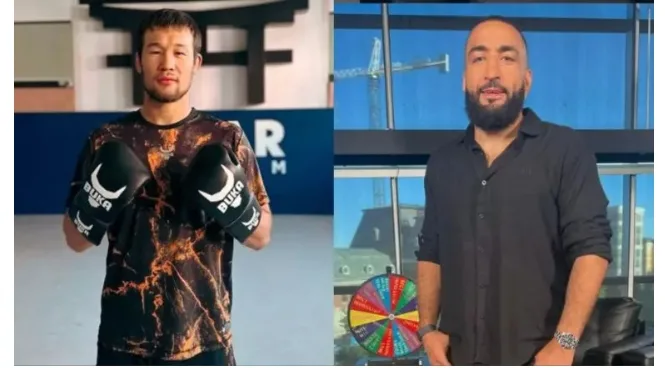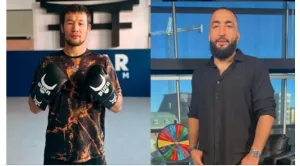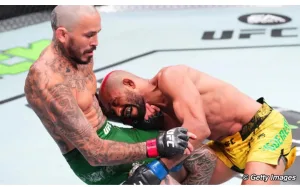
JUST IN:Shavkat Rakhmonov accuses Belal Muhammad of avoiding UFC 310 fight All that talk about being an active champion…

In a recent turn of events in the UFC, Shavkat Rakhmonov has publicly accused Belal Muhammad of dodging a fight at UFC 310. Rakhmonov accusations come amid Muhammad’s assertions about his commitment to remaining an active champion. This situation has sparked considerable debate among MMA fans and analysts alike, raising questions about fighter responsibility, the dynamics of matchmaking, and the pressures of holding a championship belt.
Shavkat Rakhmonov, known for his unblemished record and dominant performances, has been a rising star in the UFC’s welterweight division. His recent challenge to Belal Muhammad, the current champion, seemed to be a natural progression for both fighters’ careers. Rakhmonov’s statement accusing Muhammad of avoiding the fight underscores his frustration with what he perceives as a reluctance from the champion to face him in the octagon.
Belal Muhammad, on the other hand, has made a name for himself not only through his fighting skills but also through his vocal commitment to being an active and engaged champion. Muhammad has often spoken about his dedication to defending his title regularly and his desire to fight the best contenders available. His public statements have reinforced his image as a champion who values activity and competition.
The clash between Rakhmonov’s accusations and Muhammad’s public persona highlights a key issue in the UFC: the balance between a fighter’s personal aspirations and the organizational demands of the sport. From Rakhmonov’s perspective, Muhammad’s refusal to take the fight might be seen as a failure to live up to his promises and a disservice to the sport. Rakhmonov’s accusations suggest a deeper frustration with what he views as a lack of true competition from the reigning champion.
Muhammad’s side of the story might involve considerations beyond simple avoidance. Factors such as injury, contractual negotiations, or strategic decisions could all play a role in the delay or cancellation of a fight.
Champions often face complex scenarios that can affect their ability to compete, including the need to manage their health, career trajectory, and the intricacies of fight contracts.
In analyzing this situation, it’s essential to consider the broader implications for the sport.
Fighters, especially champions, are often under immense pressure to maintain their status while navigating the complexities of fight scheduling and personal circumstances.
Accusations of avoidance can significantly impact a fighter’s reputation and marketability, potentially influencing future matchups and fan perceptions.
Moreover, this scenario raises questions about the UFC’s role in facilitating fair and competitive matchups.
The organization is responsible for managing the careers of its fighters, ensuring that high-stakes bouts are arranged in a manner that serves the sport’s integrity and maintains fan interest.
In cases where a champion appears to be avoiding high-profile fights, the UFC must navigate the delicate balance between ensuring competitive fairness and addressing the concerns of all parties involved.
In summary, Shavkat Rakhmonov’s accusations against Belal Muhammad reflect deeper issues within the UFC regarding fighter management and the commitment of champions to their roles.
Muhammad’s public commitment to being an active champion stands in contrast to Rakhmonov’s claims, illustrating the tension between personal promises and professional realities.
As the situation evolves, it will be crucial to see how both fighters and the UFC address these challenges to uphold the sport’s competitive spirit and integrity.







